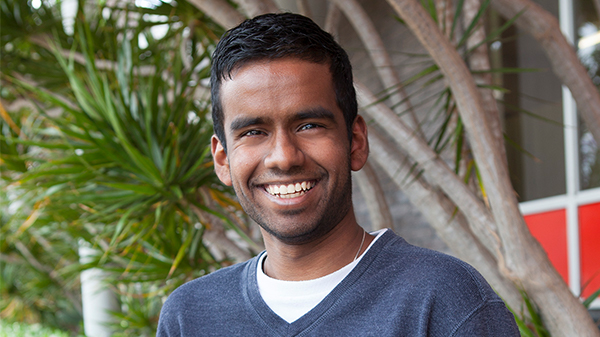Details
Structure
| Unit Code | Unit Title | Credit Points |
|---|---|---|
| YWK1220 | Youth Issues | 15 |
| CSV1103 | Interpersonal and Helping Skills | 15 |
| Unit Code | Unit Title | Credit Points |
|---|---|---|
| YWK1101 | Principles of Youth Work | 15 |
| CSV1203 | Working with Groups | 15 |
| Unit Code | Unit Title | Credit Points |
|---|---|---|
| YWK2113 | Youth Work Professional Placement | 30 |
| CSV2109 | Vulnerable People and Communities | 15 |
Note YWK2113 is a year long unit
| Unit Code | Unit Title | Credit Points |
|---|---|---|
| CSV2116 | Ethics in Human Services | 15 |
For more detailed unit information for this Major take a look at our Handbook. To organise your life for next semester visit the Teaching timetable.
Student handbookNotes
Important notes
-
Students are required to undertake a practical placement in at least two different youth work agencies. This placement is assessed by portfolio against the requirement of the Western Australian Association of Youth Workers.
Attendance requirements
Students must attend placement agencies as agreed with the practicum coordinator. Students are required to complete 400 hours over two semesters, negotiated between the student, the practicum coordinator and the agency.
Clearances and/or Risk Management Protocols Required
Risk Management Assessment is negotiated with the agencies and ECU under agreement arrangements. Western Australian applicants are required to have a Working With Children Check. Applicants from other Australian states and territories must be able to meet the criminal checks relevant to their jurisdiction. International students must meet Western Australian requirements, in addition to the requirements of their home country.
Professional practice rules
Students must meet the requirements specified by the Western Australian Association of Youth Workers, which includes adherence to their code of professional ethics.
Learning Outcomes
- Demonstrate broad and coherent theoretical and technical knowledge of youth work theory, methods, principles and values with multi-disciplinary research.
- Analyse and evaluate the contribution of youth work to society, communities and young people demonstrating cross cultural responsiveness.
- Review, analyse and synthesise youth and community work knowledge by engaging in both critical thinking and reflective practice to resolve problems encountered in professional work as a novice graduate youth worker.
- Identify how global context shapes similarities and differences in work with young people in other countries.
- Plan, design, develop, implement and evaluate programs and services that meet young people's needs and the requirements of employers and of funding bodies.
- Professionally and ethically communicate youth work knowledge amongst diverse audiences including young people, families, colleagues and the public.
- Demonstrate knowledge, skills and understanding necessary to make decisions based upon their full environmental, social, cultural and economic implications relating to Youth Work.
- Demonstrate ability to collaborate professionally with others through team work in academic and professional environments.
- Demonstrate use of technologies appropriate to youth work professional practice.
- Apply and evaluate sustainability principles in program design and development and problem solving in the context of youth work professional practice.
- Apply understanding of sociocultural and international diversity and other values that are the underpinning of youth work as a discipline/
- Demonstrate English literacy appropriate to professional youth work communication, including all relevant forms of oral and written communication, both formal and informal.
- Demonstrate numeracy proficiency appropriate to professional youth work including numeracy sufficient to develop and read budgets for service provision and to interpret and produce reports that include qualitative and quantitative data.
Career Opportunities
Employment opportunities
Prepares graduates for a diverse range of positions in youth work. Depending on students' selection of complementary studies they may wish to pursue careers with a special focus on recreation, sport, adventure programs, youth arts, youth counselling, addiction services, youth mental health services, or youth justice. Entry level positions may be in youth welfare services including homeless support services, youth health, youth advice, advocacy and support programs. Graduates also find employment in youth holiday programs, youth activity centres, informal education with young people, school-based support programs, and chaplaincy. Employers of youth work graduates include, Local, State and Federal Government, National Charities and local community organisations.
Possible future job titles
Youth Worker, Youth Support Worker, Youth Development Officer, Youth Activities Officer, Youth Welfare Worker, Youth and Family Mediation, Youth Health Educator, Youth Policy Officer, Youth Outreach Worker, Youth Engagement Worker, Youth Mental Health Worker, School Chaplain, Youth Mental Health Care Coordinator, Youth and Community Worker, Community Education Worker (Youth), Youth Officer, Youth Liaison Worker, School Retention and Participation Officer. Youth Accommodation Worker, Student Support Officer, Youth Counsellor




